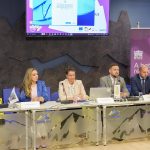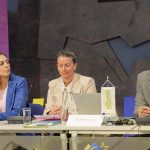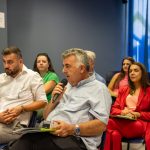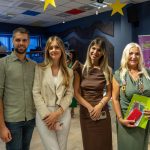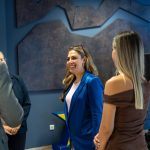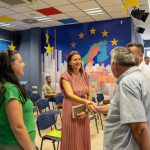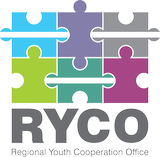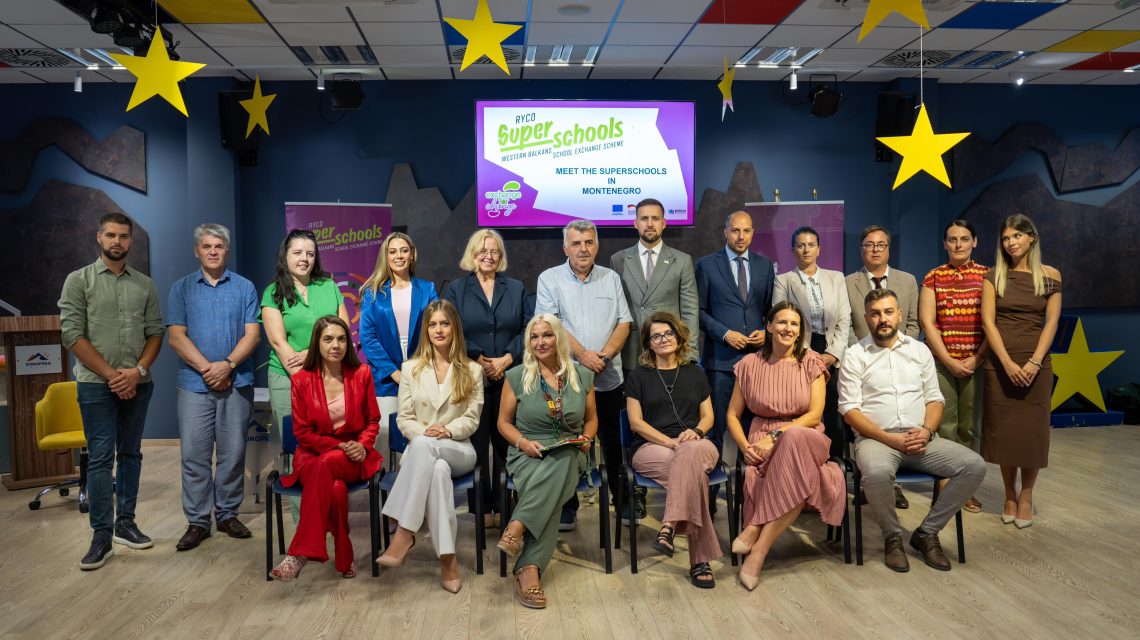PODGORICA – 5 schools from Montenegro received the title of “Superschool” this year, and their conceptual projects, which will contribute further to the building of peace and reconciliation and intercultural learning and dialogue between schools, students, and their communities, within the framework of the Highschool Exchange Program in the Western Balkans, were presented today at a public event called “Meet the Superschools”, organized by the Regional Office for Youth Cooperation (RYCO) in cooperation with Deutsche Gesellschaft für Internationale Zusammenarbeit (GIZ).
In addition to the representatives of the selected schools, the event was also attended by the Director of the Directorate for High School and Vocational Education of the Ministry of Education, Science, and Innovation of Montenegro, Ms. Marija Gošović, Deputy Head of the Cooperation Sector of the EU Delegation in Montenegro, Ms. Liselotte Isaksson, chargé d’affaires at the embassy of the Federal Republic of Germany in Montenegro, Mr. Ralf Reusch, State Secretary of the Ministry of Sports and Youth, Mr. Vladimir Obradović, project manager of the Superschool program, Ms. Mimoza Gavrani and the head of the RYCO local office in Montenegro, Mr. Edin Koljenović.
While opening the event, the Director of the Directorate for High School and Vocational Education of the Ministry of Education, Science, and Innovation, Marija Gošović, said that she was particularly happy that schools from Montenegro would contribute to building peace, reconciliation, and cooperation in the Western Balkans.
“The Ministry is dedicated to supporting youth mobility and the common goal of building good neighborly relations in the region, mutual respect, and creating a common future for young people,” emphasized Marija Gošović, the Director of the Directorate for High School and Vocational Education of the Ministry of Education, Science, and Innovation,
In addition to mobility, the “Superschool” program offers young people the opportunity to connect with their peers from the region, and therefore, as Liselotte Isaksson, deputy head of the Department for Cooperation of the EU Delegation in Montenegro said:
“They create long-lasting ties with peers from across the region. The Superschool program recognizes and succeeds in channeling young people’s energy and ideas in order to strengthen the values promoted by the European Union.”
Chargé d’affaires of the German Embassy Ralf Reusch emphasized that “Through exchange programs such as Superschools, young people can improve themselves, break prejudices and stereotypes, but also contribute positively to the society as a whole.”
Mr. Reusch also referred to the fact that this year marks the tenth anniversary of the Berlin Process, which created the Regional Youth Cooperation Office, which now contributes to the formation of a new generation of leaders in the Western Balkans.
The Ministry of Sports and Youth of Montenegro greatly values initiatives that contribute to the empowerment of young people, and the “Superschools” program is an example of how cross-border cooperation has a positive effect on the education system and society as a whole.
“Young people are becoming more mature and humane, dedicated to preserving peace and changing the world for the better”, stated State Secretary Vladimir Obradović, adding that the Ministry of Sports and Youth will continue to support this project.
The project manager of the Superschool program, Mimoza Gavrani, thanked local and international partners for their presence at the beginning of the new Superschool cycle.
She emphasized that the “Meet the Superschools event is an opportunity to mark the beginning of the implementation phase of the exchange program.”
She also pointed out that she is looking forward to new project ideas that will enrich the experiences of students throughout the region and contribute to the promotion of the values that RYCO stands for.
The head of the RYCO office in Montenegro, Edin Koljenović, said that the Superschool program is one of the most important projects that RYCO, in cooperation with partners and schools, has been successfully implementing for the fourth year in a row. He expressed his gratitude to the professors and principals of secondary schools who were awarded as well as the panelists, representatives of the EU Delegation, the German Embassy and the Ministries of Education, Science and Innovation as well as Sports and Youth, for their continued support in the important mission of promoting regional cooperation, intercultural dialogue and youth
mobility.
In addition to the presentation of project ideas, the event also served as an opportunity for the representatives of the selected schools to get to know each other better and meet with important local and international partners of the Superschool project, as well as to learn more about the next steps in the process of implementing exchanges.
The upcoming exchange activities will be conducted from November 15 of this year to April 15 of the following year, and the teaching and management staff of the schools will coordinate and develop the activities with the help of RYCO mentors. The list of 90 awarded secondary schools from the region, 5 of which are from Montenegro, is available on the website of the Regional Office for Youth Cooperation.
In the project implementation phase, each school will organize one visit to a partner school for up to 7 days, and students will travel accompanied by one or two professors. The school exchange program will give students and teachers the opportunity to travel, introduce themselves, their school, and customs, as well as learn something new about local communities in different parts of our region.
During this “Superschool” open call, more than 90 exchange proposals were received, 113 partnerships were created (of which 21 were long-term partnerships between schools that participated in the first cycle of exchanges), and more than 579 secondary schools from the Western Balkans benefited from platform www.superschools.net to connect with other schools, and the Selection committee had a difficult task to choose the 45 best projects.
